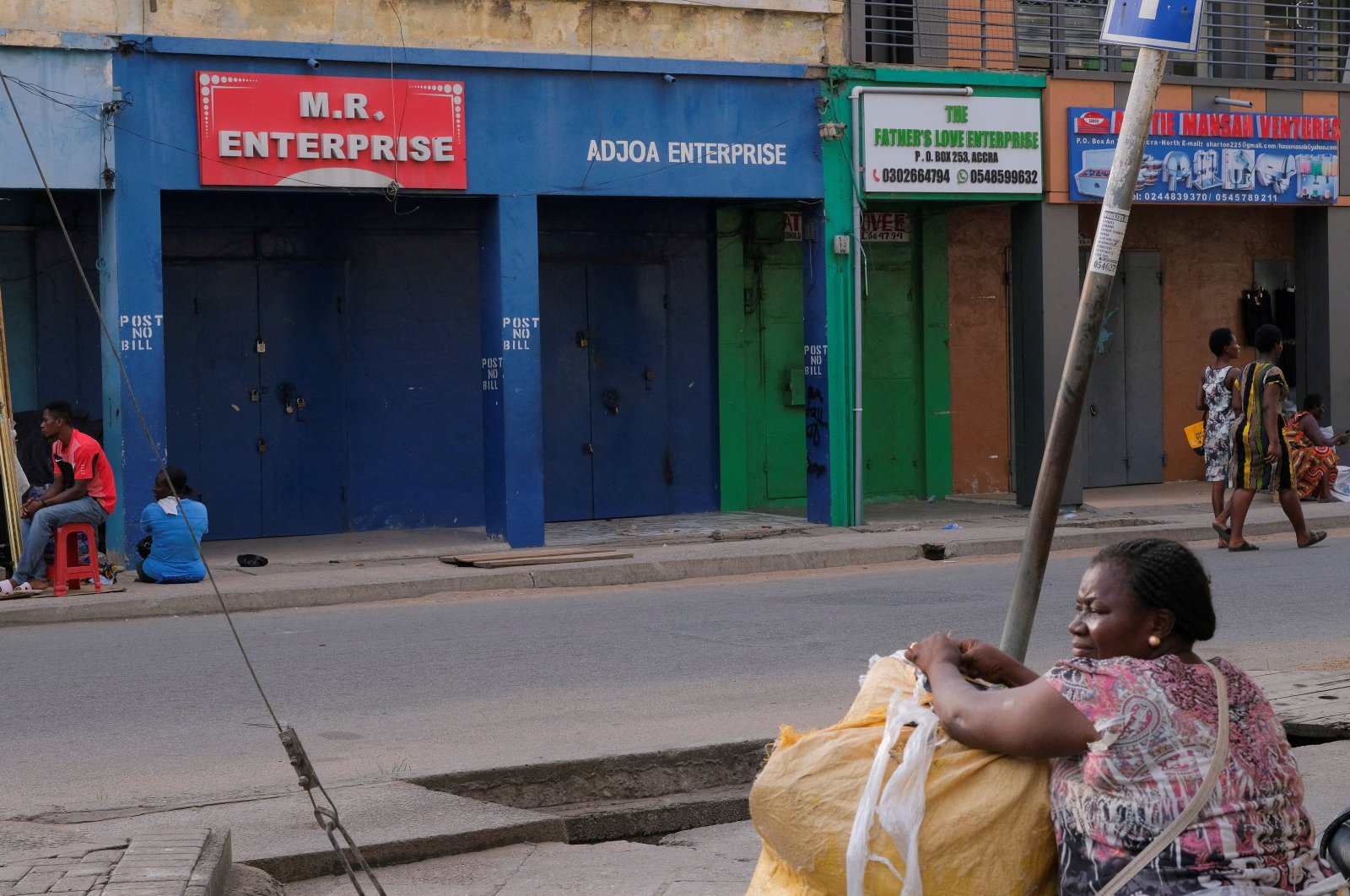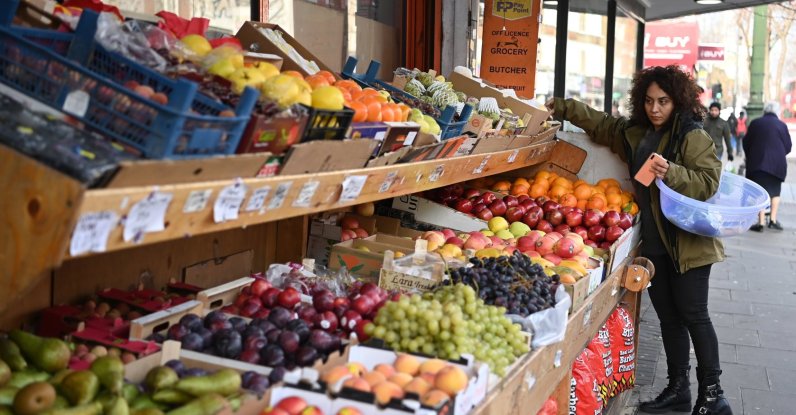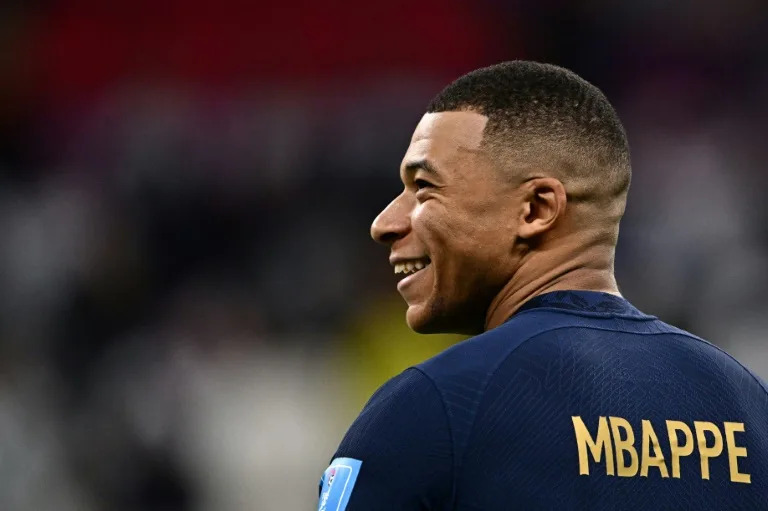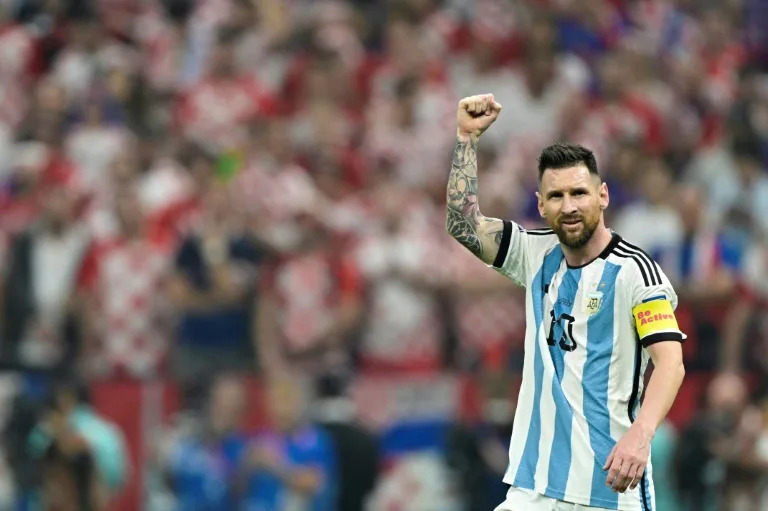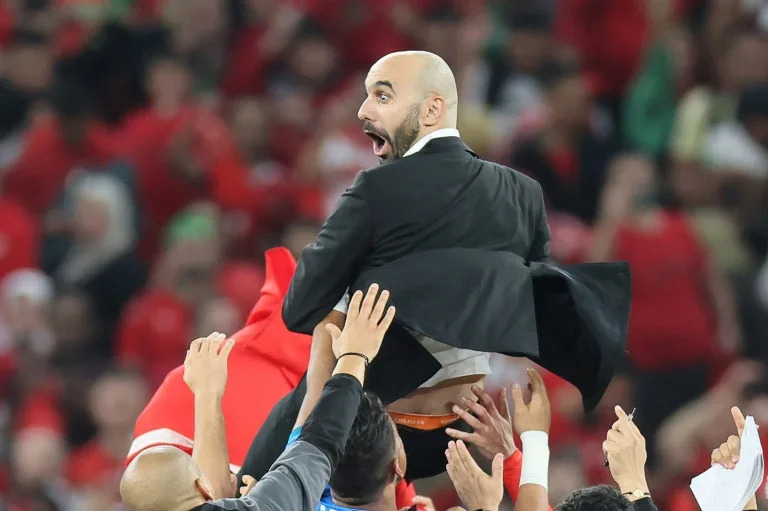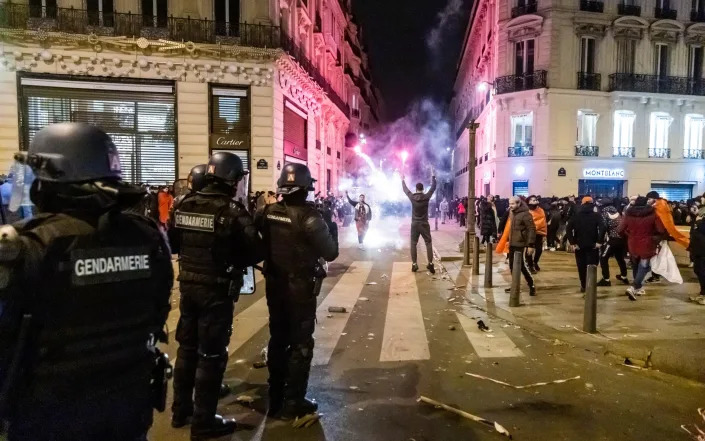Dmitry ZAKS
Wed, December 14, 2022
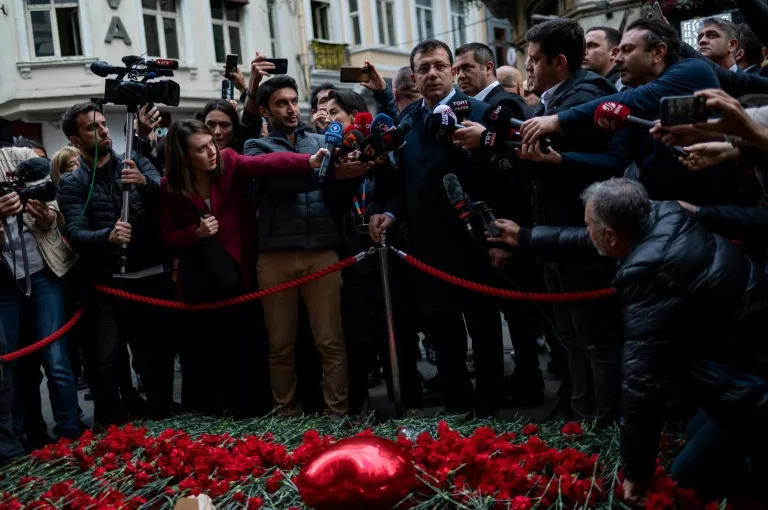
A Turkish court on Wednesday sentenced Istanbul's popular opposition mayor to nearly three years jail in a politically charged defamation trial that effectively bars him from standing in next June's presidential election.
Ekrem Imamoglu's team immediately vowed to appeal his conviction in a case stemming from a remark he made after defeating President Recep Tayyip Erdogan's ally in a hugely controversial 2019 mayoral vote.
People sentenced to less than four years are rarely put behind bars in Turkey.
But his conviction for "insulting a public official" disqualifies the 52-year-old mayor -- one of the brightest stars of Turkey's main secular party -- from politics for the duration of the sentence.
Imamoglu will continue heading Turkey's largest and most fabled city while his appeal winds its way through the courts.
"Government resign!" hundreds of Imamoglu supporters chanted outside the mayor's office moments after the verdict was read out.
"A handful of guys can't take away the power given to us by the people," Imamoglu defiantly told the crowd.
- 'Idiots' -
The trial focused on an offhand remark Imamoglu made to reporters a few months after defeating Erdogan's ally in a re-run election held after his first victory was annulled.
Officials reported discovering hundreds of thousands of "suspicious votes" after Erdogan refused to acknowledge Imamoglu's initial win in a city that he himself ran before entering national politics two decades ago.
The decision backfired badly on Erdogan's Islamic-rooted party.
Waves of protests and a groundswell of support from all political corners delivered Imamoglu an overwhelming victory in a re-run vote held that June.
Imamoglu let his frustration at the entire episode spill over a few months later by calling the people who annulled the first vote "idiots".
An Istanbul court sentenced Imamoglu to two years and seven-and-a-half months in prison for defamation.
It also applied a separate clause of the penal code that bars the mayor from politics.
Imamoglu's pending disqualification comes with Turkey's opposition parties still arguing about who should stand against Erdogan in next June's presidential vote.
The Istanbul mayor is among a handful of opposition leaders polls show could beat Erdogan in a head-to-head race.
- 'Revenge' -
Erdogan's domination of Turkish politics has been shaken by an economic crisis that has been compounded by his unconventional approach to interest rates.
But more recent polls show Erdogan's ratings beginning to recover thanks to his widely praised handling of Russia's invasion of Ukraine.
This places even more pressure on the opposition to put aside their personal rivalries in the election campaign.
Imamoglu's CHP party is headed by Kemal Kilicdaroglu -- a leftist former civil servant who generally performs poorly in opinion polls.
The CHP has been holding round-table talks with five smaller allies about a single candidate who would not split the anti-Erdogan vote.
Those talks have been mired in arguments over policy and general unease about fielding Kilicdaroglu instead of someone more likely to beat Erdogan.
Imamoglu appeared to sense a guilty verdict coming when he told reporters this week that Kilicdaroglu was the only candidate who could represent the CHP.
Kilicdaroglu blamed the verdict squarely on Erdogan.
"We see how the law is being massacred, how the state has surrendered to the will of one person, how justice has been corrupted, how revenge is being carried out," Kilicdaroglu said in a video message recorded during a business trip to Berlin.
"But don't worry. We will defend justice until the end," he said before boarding an urgent flight back to Istanbul.
The ambitious, troubled Istanbul mayor taking on Erdogan
 Istanbul's opposition mayor Ekrem Imamoglu has developed a personal rivalry with President Recep Tayyip Erdogan
Istanbul's opposition mayor Ekrem Imamoglu has developed a personal rivalry with President Recep Tayyip Erdogan
Issued on: 14/12/2022
Istanbul (AFP) – Istanbul mayor Ekrem Imamoglu vowed to fight for a democratic revolution after initially being stripped of his victory over Turkish President Recep Tayyip Erdogan's ally in a 2019 election that again threatens to prematurely end his political career.
The smooth-talking opposition figure's whopping win in a re-run vote three months later turned him into one of the rising stars threatening to break Erdogan's two-decade domination of Turkish politics.
But an Istanbul criminal court ruled Wednesday that Imamoglu's offhand remark to reporters that the city's election officials were "idiots" was defamatory and sentenced him to nearly three years in jail.
It also barred him from politics for the duration of the sentence.
Imamoglu's has appealed, meaning that he will continue serving as mayor while putting his fate in the hands of judges whose impartially he questions all the time.
The case highlights Imamoglu's struggles since the heady days when he grabbed global attention by showing that Erdogan -- who prides himself on never losing an election -- was not invincible.
The 68-year-old Turkish leader launched his own political career as a fiery mayor of Istanbul in the 1990s.
Imamoglu may have been thinking of doing the same when he got Turkey's fractured opposition parties to rally around his mayoral candidacy three years ago.
"What we are doing now is a fight for democracy," Imamoglu told AFP in an interview conducted between the two rounds of voting.
"It will of course be a revolution once we carry it to its conclusion."
Protest wave
Imamoglu's rise from local Istanbul district leader to mayor came on an anti-Erdogan wave that allowed opposition parties to grab power in Turkey's most important cities -- including the capital Ankara.
Some voters were rebelling against the sweeping purges that followed a failed military putsch in 2016.
Others were disenchanted by an economic crisis that erupted with a breakdown in Turkish-US relations in 2018.
A new breed of leaders from the staunchly secular CHP party such as Imamoglu and Mansur Yavas in Ankara provided a clear alternative to Erdogan's Islamic-rooted AKP.
But Imamoglu and Yavas have taken sharply different courses since their joint victories in 2019.
 Ekrem Imamoglu won the re-run of Istanbul's disputed 2019 mayoral election by a whopping margin © Onur GUNAL / Republican People's Party (CHP) Press Service/AFP
Ekrem Imamoglu won the re-run of Istanbul's disputed 2019 mayoral election by a whopping margin © Onur GUNAL / Republican People's Party (CHP) Press Service/AFP
Yavas now ranks as the most likely potential candidate to beat Erdogan in presidential polls due by June 2023.
Analysts believe the secret to Yavas's success lies in his decision to steer well clear of national politics and to focus on fixing Ankara's problems.
Not so Imamoglu.
The Istanbul mayor crafts his media image and runs viral social media campaigns that both raise his profile and -- based on Twitter responses -- grate on many voters' nerves.
State media have turned him into a hate figure and polls show him having a far tougher time against Erdogan in a likely second round runoff than most other opposition leaders.
His troubles are compounded by Erdogan taking credit for many of the grand projects that have made Istanbul into a more livable city over recent years.
Missteps
Imamoglu has never hidden his presidential ambitions.
He studied business administration at Istanbul University and completed a masters degree in management before entering his family's construction business.
His love of football pushed him to become an administrator with his hometown team in the Black Sea port of Trabzon.
He soon joined the main opposition party and was elected mayor of the up-and-coming Beylikduzu district on the European side of Istanbul in 2014.
Imamoglu told reporters this year that he was not thinking of running for president "at this time".
He will have to tread carefully should the courts make him eligible to run for higher office any time soon.
Pro-government media were filled with images grabbed off surveillance cameras in January showing him having dinner at a fish restaurant with the UK ambassador.
Istanbul was then digging out from under a snowstorm and the pictures played into government portrayals of the mayor as out of touch and Western-backed.
His attempts to court state media backfired with a furore over a photo of his meeting with pro-government reporters aboard his tour bus in May.
Imamoglu shut down his spokesman's entire department after the photo emerged.
© 2022 AFP
Issued on: 14/12/2022
Istanbul (AFP) – Istanbul mayor Ekrem Imamoglu vowed to fight for a democratic revolution after initially being stripped of his victory over Turkish President Recep Tayyip Erdogan's ally in a 2019 election that again threatens to prematurely end his political career.
The smooth-talking opposition figure's whopping win in a re-run vote three months later turned him into one of the rising stars threatening to break Erdogan's two-decade domination of Turkish politics.
But an Istanbul criminal court ruled Wednesday that Imamoglu's offhand remark to reporters that the city's election officials were "idiots" was defamatory and sentenced him to nearly three years in jail.
It also barred him from politics for the duration of the sentence.
Imamoglu's has appealed, meaning that he will continue serving as mayor while putting his fate in the hands of judges whose impartially he questions all the time.
The case highlights Imamoglu's struggles since the heady days when he grabbed global attention by showing that Erdogan -- who prides himself on never losing an election -- was not invincible.
The 68-year-old Turkish leader launched his own political career as a fiery mayor of Istanbul in the 1990s.
Imamoglu may have been thinking of doing the same when he got Turkey's fractured opposition parties to rally around his mayoral candidacy three years ago.
"What we are doing now is a fight for democracy," Imamoglu told AFP in an interview conducted between the two rounds of voting.
"It will of course be a revolution once we carry it to its conclusion."
Protest wave
Imamoglu's rise from local Istanbul district leader to mayor came on an anti-Erdogan wave that allowed opposition parties to grab power in Turkey's most important cities -- including the capital Ankara.
Some voters were rebelling against the sweeping purges that followed a failed military putsch in 2016.
Others were disenchanted by an economic crisis that erupted with a breakdown in Turkish-US relations in 2018.
A new breed of leaders from the staunchly secular CHP party such as Imamoglu and Mansur Yavas in Ankara provided a clear alternative to Erdogan's Islamic-rooted AKP.
But Imamoglu and Yavas have taken sharply different courses since their joint victories in 2019.
Yavas now ranks as the most likely potential candidate to beat Erdogan in presidential polls due by June 2023.
Analysts believe the secret to Yavas's success lies in his decision to steer well clear of national politics and to focus on fixing Ankara's problems.
Not so Imamoglu.
The Istanbul mayor crafts his media image and runs viral social media campaigns that both raise his profile and -- based on Twitter responses -- grate on many voters' nerves.
State media have turned him into a hate figure and polls show him having a far tougher time against Erdogan in a likely second round runoff than most other opposition leaders.
His troubles are compounded by Erdogan taking credit for many of the grand projects that have made Istanbul into a more livable city over recent years.
Missteps
Imamoglu has never hidden his presidential ambitions.
He studied business administration at Istanbul University and completed a masters degree in management before entering his family's construction business.
His love of football pushed him to become an administrator with his hometown team in the Black Sea port of Trabzon.
He soon joined the main opposition party and was elected mayor of the up-and-coming Beylikduzu district on the European side of Istanbul in 2014.
Imamoglu told reporters this year that he was not thinking of running for president "at this time".
He will have to tread carefully should the courts make him eligible to run for higher office any time soon.
Pro-government media were filled with images grabbed off surveillance cameras in January showing him having dinner at a fish restaurant with the UK ambassador.
Istanbul was then digging out from under a snowstorm and the pictures played into government portrayals of the mayor as out of touch and Western-backed.
His attempts to court state media backfired with a furore over a photo of his meeting with pro-government reporters aboard his tour bus in May.
Imamoglu shut down his spokesman's entire department after the photo emerged.
© 2022 AFP




.png)

